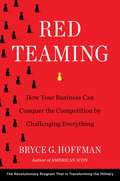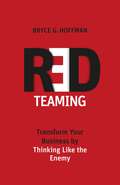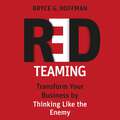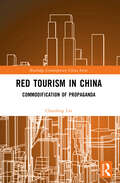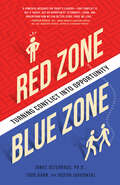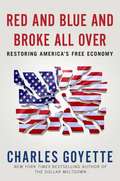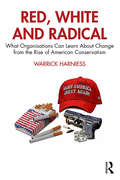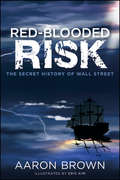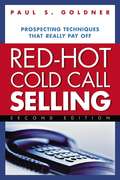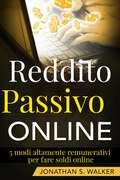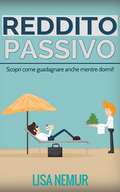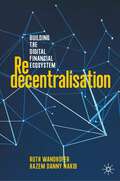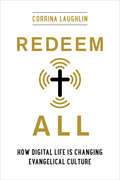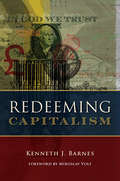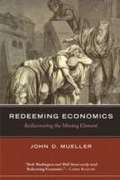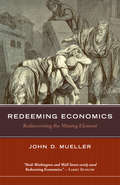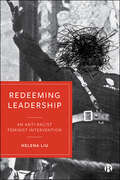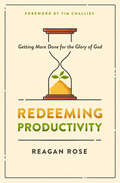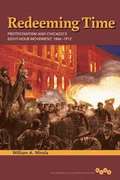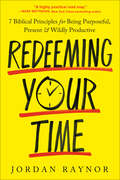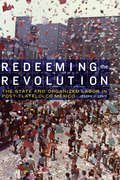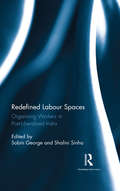- Table View
- List View
Red Teaming: How Your Business Can Conquer the Competition by Challenging Everything
by Bryce G. HoffmanRed Teaming is a revolutionary new way to make critical and contrarian thinking part of the planning process of any organization, allowing companies to stress-test their strategies, flush out hidden threats and missed opportunities and avoid being sandbagged by competitors. Today, most — if not all — established corporations live with the gnawing fear that there is another Uber out there just waiting to disrupt their industry. Red Teaming is the cure for this anxiety. The term was coined by the U.S. Army, which has developed the most comprehensive and effective approach to Red Teaming in the world today in response to the debacles of its recent wars in Iraq and Afghanistan. However, the roots of Red Teaming run very deep: to the Roman Catholic Church’s “Office of the Devil’s Advocate,” to the Kriegsspiel of the Prussian General Staff and to the secretive AMAN organization, Israel’s Directorate of Military Intelligence. In this book, author Bryce Hoffman shows business how to use the same techniques to better plan for the uncertainties of today’s rapidly changing economy. Red Teaming is both a set of analytical tools and a mindset. It is designed to overcome the mental blind spots and cognitive biases that all of us fall victim to when we try to address complex problems. The same heuristics that allow us to successfully navigate life and business also cause us to miss or ignore important information. It is a simple and provable fact that we do not know what we do not know. The good news is that, through Red Teaming, we can find out. In this book, Hoffman shows how the most innovative and disruptive companies, such as Google and Toyota, already employ some of these techniques organically. He also shows how many high-profile business failures, including those that sparked the Great Recession, could easily have been averted by using these approaches. Most importantly, he teaches leaders how to make Red Teaming part of their own planning process, laying the foundation for a movement that will change the way America does business.
Red Teaming: Transform Your Business by Thinking Like the Enemy
by Bryce G. HoffmanTHE GAME-CHANGING APPROACH TO STRATEGY AND PLANNING THAT WILL KEEP YOUR BUSINESS AHEAD OF THE COMPETITION'American Icon was one of the most significant business books ever written and Red Teaming is further proof that Bryce Hoffman is one of the great business writers and thinkers of our time. This is a book that every business and team needs to read NOW! - Jon Gordon, bestselling author of The Energy Bus and You Win in the Locker Room First 'Another home run for Bryce Hoffman. Red teaming methods can correct overconfidence and impulsive decision making - just what we need today' - Gary Klein, Ph.D., Senior Scientist, MacroCognition LLC, and author of Sources of Power 'Red Teaming provides the specific tools and a reliable process to continuously improve your management system and business plan to adapt and thrive in our rapidly changing world' - Alan Mulally, Retired President and CEO of The Ford Motor Company and Boeing Commercial Airplanes Developed by the military and intelligence agencies, red teaming is a revolutionary way to stress-test strategies, flush out unseen threats and missed opportunities and execute more successfully in an increasingly uncertain world. Red teaming can help any company plan better, anticipate emerging threats and avoid potentially disastrous mistakes - from mistimed product launches to ill-conceived acquisitions. Drawing on the latest research in cognitive psychology, red teaming is specifically designed to overcome the mental blind spots and biases companies and individuals fall victim to when making big decisions or trying to solve complex problems. Red teaming makes critical and contrarian thinking part of the planning process, forcing companies to take a hard look their assumptions, examine the ways in which plans could fail, and carefully consider alternative explanations and perspectives. It enables organizations to make smarter choices and turn disruptive events into opportunities.Many of these same approaches have been organically incorporated into the decision-making processes of today's most sucecssful companies, from Amazon and Google to Ford and Toyota. As the first civilian to graduate from the US Army's elite red team leaders course, Bryce Hoffman is uniquely placed to reveal a clear set of tools and techniques that will enable every company, department, team and organization to adopt this game-changing method into their business too. By embracing red teaming, managers, leaders and aspiring leaders in companies of every size and in every industry will be able to plan better, compete more effectively, innovate more proactively, and make their businesses one of the disruptors in the marketplace, rather than one of the disrupted. Don't get left behind.
Red Teaming: Transform Your Business by Thinking Like the Enemy
by Bryce G. HoffmanIn 2007, Steve Ballmer, the CEO of Microsoft, declared: "There's no chance that the iPhone is going to get any significant market share." The year after, the CEO of Blockbuster told press that "Neither RedBox nor Netflix are even on the radar screen in terms of competition". Well, hindsight is always 20/20. But what if there was a way to make foresight just as sharp?Arguably, neither of these companies would have been blindsided if they had had red teams. The ingenious and counterintuitive practice of red teaming has its origins in the military, and involves creating a group of devil's advocates to think like the enemy, challenge existing assumptions within an organisation and find holes in its strategy. It's a powerful cure for groupthink, tunnel vision and failures of imagination - ailments that have transformed many once-great corporations into the walking dead of the business world.RED TEAMING is the first major book to look at the business applications of red teams. It will provide readers with a guide to the core techniques of red teaming as well as its history and fascinating real-world examples. It will teach businesses how to challenge the conventions of their industry like an innovative disruptor would, and spot threats while there is still time to respond to them - creating a culture in which challenges are not only tolerated, but valued.
Red Tourism in China: Commodification of Propaganda (Routledge Contemporary China Series)
by Chunfeng LinThis book analyzes the phenomenally profitable “Red Tourism” industry in China, in which visitors make pilgrimages to sites of historical significance to the Communist Party of China and the Chinese Revolution. The book examines Red Tourism in connection with the transforming power relations between the state and the private, communication in the socialist past, and the current round of capitalization, against the backdrop of the world’s second largest economy. By re-evaluating the conventional notion of propaganda through the lens of neutral xuanchuan propaganda, the book presents a nuanced look at the social space of Red Tourism, revealing that propaganda should be conceived as a commodity, an industry, or even a media system similar to the news media. Drawn from combining fieldwork and cultural analysis spanning a decade, this book will be of interest to students and scholars of communication studies, tourism, and Chinese politics.
Red Zone, Blue Zone: Turning Conflict into Opportunity
by James Osterhaus Joseph Jurkowski Todd HahnMost of us fear and dread conflict, at home or at work. But conflict can be your ally, not your enemy. Conflict doesn’t have to tear your family or organization apart.Using the story of a family business leader embroiled in generational conflict, Red Zone, Blue Zone shows how to navigate conflict in a way that is healthy and leads to enhanced relationships, self-awareness, and greater leadership success. Practical response activities and personal reflection questions help the reader understand the sources of conflict, have a working command of conflict navigation principles, and be equipped to help others navigate conflict in their own lives.In Red Zone, Blue Zone readers will learn skills such as:Questioning, ListeningPacingReframing
Red and Blue and Broke All Over: Restoring America's Free Economy
by Charles GoyetteNew York Times bestselling author of The Dollar Meltdown . In his New York Times bestseller The Dollar Meltdown, Charles Goyette showed how increasing government debt is destroying the dollar and the wealth of the American people. But the problem goes much deeper: the country is heading for financial ruin because our leaders are ideologically bankrupt. The time has come for a dramatic solution. We need look no further than the Obama White House to find the culprits of America’s crippled prospects for recovery. They’ve forced the adoption of bailouts and unnecessary spending programs that do little but destroy wealth and drown the government in more debt and ever increasing red tape while engaging in undeclared wars at the expense of the people and their prosperity. But this isn’t just a Democratic problem. The Bush administration was no better, with its unending and bankrupting elective war and the largest bailout in our nation’s history. It’s time for a solution that goes beyond politics as usual from the same old Red or Blue. Goyette explains how the growth of federal power and its costly warfare and welfare spending are bankrupting America and strangling our prosperity. The incredible $1. 2 trillion a year we spend on state security is leading us straight down the road to ruinous debt. Transfer payments and social spending are equally unsustainable financial time bombs. The time has come to release the stranglehold of excessive government spending and ineffective over-regulation and let the free economy function as it was originally intended. Career politicians continue to pointlessly argue without enacting real and effective change. No wonder a feeling of disenfranchisement is growing. Their destructive agenda needs to be exposed and stopped before it does us any more harm. Goyette reveals: How increasing government debt and inflationary manipulations will bring down the dollar, which is already in decline. How the longstanding practice of crony capitalism—the strong ties between bankers, corporate executives, and their buddies and former colleagues in high government posts—strangles our economy. Why we need to reign in overseas spending and end American interventionism, before we meet the same fate as The Roman Empire, Napoleon’s France, the Soviet Union, and every other empire in history. Why freedom works and why the state doesn’t. Left to flourish on their own, spontaneous, self-organizing systems can and will restore our prosperity. Red and Blue and Broke All Over couldn’t be timelier. In the face of the American government’s reckless spending, invasive social programs, unnecessary warmongering, and ill-advised, ineffective financial manipulation, it’s time to face the facts: we can’t continue along the same destructive path if we’re serious about turning our country around .
Red, White and Radical: What Organisations Can Learn About Change from the Rise of American Conservatism
by Warrick HarniessRed, White and Radical explores how and why America has become so conservative since World War II. In the process, it offers lessons that professional leaders, regardless of their political stance, should heed if they want their organisational change plans to succeed. Over the past 70 years, a motley crew of suburban activists, libertarian businessmen and political opportunists have radically changed America and its national values. The rise of American conservatism is the greatest modern example of cultural change in the Western world. How did they do it – and what can we learn from this? Red, White and Radical is a manual for organisational change. It tells nine stories from American cultural, political and business history that illuminate how conservatives have pioneered change. From these stories, it extracts a change management lesson for professional leaders and explains how to apply that lesson in the workplace. These nine lessons are organised into a clear change framework: understanding and motivating people communicating with emotion and authenticity building teams and networks that can deliver lasting change. Along the way you’ll also learn: how Marlboro became the world’s biggest cigarette brand why conservatives love Ronald Reagan but despise Richard Nixon the origins of the social media echo chamber how Silicon Valley learned to lobby the secrets of Donald Trump’s populist X Factor. Red, White and Radical is not for the faint of heart. If you’re a passionate business leader who relishes the challenge of delivering true organisational change for the better, then this book is for you.
Red-Blooded Risk
by Aaron BrownAn innovative guide that identifies what distinguishes the best financial risk takers from the restFrom 1987 to 1992, a small group of Wall Street quants invented an entirely new way of managing risk to maximize success: risk management for risk-takers. This is the secret that lets tiny quantitative edges create hedge fund billionaires, and defines the powerful modern global derivatives economy. The same practical techniques are still used today by risk-takers in finance as well as many other fields. Red-Blooded Risk examines this approach and offers valuable advice for the calculated risk-takers who need precise quantitative guidance that will help separate them from the rest of the pack. While most commentators say that the last financial crisis proved it's time to follow risk-minimizing techniques, they're wrong. The only way to succeed at anything is to manage true risk, which includes the chance of loss. Red-Blooded Risk presents specific, actionable strategies that will allow you to be a practical risk-taker in even the most dynamic markets.Contains a secret history of Wall Street, the parts all the other books leave outIncludes an intellectually rigorous narrative addressing what it takes to really make it in any risky activity, on or off Wall StreetAddresses essential issues ranging from the way you think about chance to economics, politics, finance, and lifeWritten by Aaron Brown, one of the most calculated and successful risk takers in the world of finance, who was an active participant in the creation of modern risk management and had a front-row seat to the last meltdownWritten in an engaging but rigorous style, with no equationsContains illustrations and graphic narrative by renowned manga artist Eric KimThere are people who disapprove of every risk before the fact, but never stop anyone from doing anything dangerous because they want to take credit for any success. The recent financial crisis has swelled their ranks, but in learning how to break free of these people, you'll discover how taking on the right risk can open the door to the most profitable opportunities.
Red-Hot Cold Call Selling: Prospecting Techniques That Really Pay Off
by Paul S. GoldnerThis guidebook is a vital resource for all sales professionals, brimming with field-proven techniques that work in any industry.Completely revised with fresh examples and all new chapters, the second edition of Red-Hot Cold Call Selling reveals the secrets, strategies, and tips you can use to elevate your prospecting skills and take their sales into the stratosphere. You will learn how you can:define and target your ideal market -- and stop squandering time, energy, and money on unfocused prospectingdevelop a personalized script utilizing all the elements of a successful cold callget valuable information from assistants -- and then get past themview voice mail not as a frustrating barrier, but as a unique opportunityRed-Hot Cold Call Selling includes new information on using the Internet for research and prospecting; cold-calling internationally; using e-mail instead of calling; and much more.
Reddito Passivo Online: 5 modi altamente remunerativi per fare soldi online
by Jonathan S. WalkerImpara i segreti per fare reddito passivo online oggi e inizia a fare soldi! Reddito passivo online: 5 modi altamente redditizi per fare soldi online Impara i segreti per fare reddito passivo online oggi e inizia a fare soldi! Sei stanco di lavorare come un cane, correndo come un pazzo come tutti gli altri là fuori? Scambi tempo per guadagnare soldi giorno dopo giorno, sacrificando tempo di qualità con amici e familiari e non avendo mai abbastanza da spendere con i vostri cari? Cosa succede se ti dico che esiste un modo per costruire un impero del reddito passivo on-line senza dover lasciare il lavoro di tutti i giorni? Il reddito passivo online è la soluzione definitiva. Per essere IL ragazzo di cui tutti sono invidiosi, è necessario iniziare a costruire un reddito passivo online OGGI. Ci vuole tempo per far crescere un'azienda da zero e questo libro ti fornirà i passi esatti che dovrai fare per iniziare quel viaggio. In questo libro imparerai: 5 Fonti redditizie per la creazione di flussi di reddito passivi online Strategie specifiche su come far crescere le aziende Costruire blog redditizi Costruire un impero commerciale e vendere con l'FBA Come creare un sito membership Come fare soldi vendendo Ebook su Amazon Kindle Store Come impostare un canale Youtube redditizio Risultati della creazione di reddito passivo online: Essere in grado di viaggiare per il mondo Realizzare i tuoi sogni Avere sicurezza finanziaria Essere finanziariamente senza stress Acquistare tutto quello che vuoi in qualsiasi momento Stai per ottenere queste strategie e grazie a tutta questa conoscenza a portata di mano farai il salto di qualità e diventerai finanziariamente libero, con un reddito passivo disponibile ogni giorno. Qualcuno che è in pensione prima dei 40 anni e ha il tempo e la libertà di vivere la vita al massimo con i loro cari. Affretta
Reddito Passivo: Scopri come guadagnare anche mentre dormi!
by Lisa Nemur S. CasonatoIl reddito passivo integra la vostra esigenza di investimenti finanziari ed il vostro lavoro a tempo pieno. Ecco cosa imparerete da questo libro: 1. Come potete beneficiare di un reddito passivo; 2. Reddito passivo ed interesse composto; 3. Reddito passivo attraverso i beni immobili; 4. Reddito passivo attraverso i diritti di brevetto/autore; 5. Idee tramite le quali guadagnare un reddito passivo; 6. Reddito passivo e pensione; 7. La mentalità del reddito passivo. Spero che questo lavoro vi aiuterà a raggiungere il giusto atteggiamento mentale riguardo al reddito passivo in modo che vi aiuti a raggiungere la libertà finanziaria.
Reddito Passivo: una Guida al Metodo per Fare Soldi Online in 30 Giorni
by John King Giorgio RichettaReddito passivo: una guida al metodo per fare soldi online in 30 giorni Vuoi creare facilmente ricchezza automatizzata e generare ricavi in soli 30 giorni? Reddito passivo: una guida al metodo per fare soldi online in 30 giorni Lo sapevate che un milionario ha in media oltre 7 flussi di reddito? Vuoi creare facilmente ricchezza automatizzata e generare ricavi in soli 30 giorni? Se hai risposto sì, allora questa pubblicazione fa per te! Questa guida possiede tonnellate di strategie per creare più flussi di reddito automatizzato. Non c'è bisogno di essere legati ad una posizione specifica e si può fare tutto comodamente dal proprio soggiorno! Qui ci sono gli argomenti che sono inclusi nel libro: Panoramica del reddito passivo Investimenti, tipologie e strategie Reddito basato sul servizio Vendere Libri Marketing affiliato Marketing di rete Vendita digitale di file E MOLTO ALTRO! Se volete imparare a creare più flussi di reddito passivo, questo libro è per voi! Scorrere fino all'inizio della pagina e fare clic su Aggiungi al carrello per l'acquisto istantaneamente Clausola di esclusione della responsabilità: Questo autore e/o proprietari di diritti non garantisce circa l'accuratezza, la completezza o l'adeguatezza del contenuto di questo libro, e declina espressamente ogni responsabilità per errori e omissioni nel contenuto all'interno. Questo prodotto è solo per uso di riferimento.
Redecentralisation: Building the Digital Financial Ecosystem
by Ruth Wandhöfer Hazem Danny NakibThe rise of smartphones, social media, cryptocurrencies and digital assets has changed our lives profoundly over the last decade. In tandem, the relationship between governments, citizens and businesses has evolved, creating new sets of challenges and imbalances, but also opportunities.This book focuses on the evolving digitisation of the financial industry and the impact this has on users. Particular attention is given to the emergence of new technologies such as blockchain, smart contracts and AI. The increasingly interconnected, data-driven digital economy, which includes many aspects of an individual’s and organisation’s life, has become a challenge for regulators, too. Matters are complex but also increasingly centralised, with a growing trend of distrust. Should we push for more decentralisation?To shed light on this question we begin by providing an overview of key concepts and develop a high-level qualitative framework and approach to what we call ‘Redecentralisation'.Delving into those technology areas that form part of the tectonic plate shift of our financial system we explore the pillars of money and payments that are at a turning point with the replacement of key infrastructural components necessary for the future of what we call the Digital Financial Ecosystem. Digital identity and data privacy also form part of this broader puzzle.We then look to the future to consider some of the latest trends and ‘what if’ scenarios. Where do we see Redecentralisation at play in the Digital Financial Ecosystem? What is the role of technology in this, e.g. Web3, the Metaverse and Decentralised Finance? Can Redecentralisation support an alignment of values across people, governments and businesses? What is the role of technology in this? And finally, do we need a new digital social contract to underpin and protect our digital lives?
Redeem All: How Digital Life Is Changing Evangelical Culture
by Corrina LaughlinRedeem All examines the surprising intersection of American evangelicalism and tech innovation. Corrina Laughlin looks at the evangelical Christians who are invested in imagining, using, hacking, adapting, and creating new media technologies for religious purposes. She finds that entrepreneurs, pastors, missionaries, and social media celebrities interpret the promises born in Silicon Valley through the framework of evangelical culture and believe that digital media can help them (to paraphrase Steve Jobs) put their own dent in the universe. Laughlin introduces readers to "startup churches" hoping to reach a global population, entrepreneurs coding for a deeper purpose, digital missionaries networking with mobile phones, and Christian influencers and podcasters seeking new forms of community engagement. Redeem All reveals how evangelicalism has changed as it eagerly adopts the norms of the digital age.
Redeeming Capitalism
by Kenneth J. BarnesOn reclaiming the moral roots of capitalism for a virtuous futureFor good or ill, the capitalism we have is the capitalism we have chosen, says Kenneth Barnes. Capitalism works, and the challenge before us is not to change its structure but to address the moral vacuum at the core of its current practice.In Redeeming Capitalism Barnes explores the history and workings of this sometimes-brutal economic system. He investigates the effects of postmodernism and unpacks biblical-theological teachings on work and wealth. Proposing virtuous choices as a way out of such pitfalls as the recent global financial crisis, Barnes envisions a more just and flourishing capitalism for the good of all.
Redeeming Capitalism
by Miroslav Volf Kenneth J. BarnesOn reclaiming the moral roots of capitalism for a virtuous futureFor good or ill, the capitalism we have is the capitalism we have chosen, says Kenneth Barnes. Capitalism works, and the challenge before us is not to change its structure but to address the moral vacuum at the core of its current practice.In Redeeming Capitalism Barnes explores the history and workings of this sometimes-brutal economic system. He investigates the effects of postmodernism and unpacks biblical-theological teachings on work and wealth. Proposing virtuous choices as a way out of such pitfalls as the recent global financial crisis, Barnes envisions a more just and flourishing capitalism for the good of all.
Redeeming Economics: Rediscovering The Missing Element
by John D. MuellerThe thesis of this book is straightforward. The most important element in economics is missing, and its rediscovery is priming a revolution the likes of which has occurred only three times in more than 750 years. The Scholastic economics of Thomas Aquinas was comprised of four key elements: the theory of production, or how much gets produced; the theory of justice in exchange, or how one is compensated through the sale of goods for contributing to production; the theory of final distribution, or who gets to consume goods; and the theory of consumption (utility), or which goods people prefer to consume, according to Mueller (director of the Economics and Ethics Program at the Ethics and Public Policy Center, self-described as "Washington, D. C. 's premier institute dedicated to applying the Judeo-Christian moral tradition to critical issues of public policy," and president of a firm specializing in economic forecasting and policy analysis). His central argument in this text is that the oversimplification of Scholastic economics that began with Adam Smith's limiting economics to merely production and exchange and then partially corrected by the neoclassicists reincorporation of the theory of utility needs to be brought full circle by reintroducing the theory of final distribution. His goal then in this wide-ranging work is to describe for the general reader what bringing the theory of final distribution back into consideration would mean for economic theory and particularly for its practical applications. Annotation ©2011 Book News, Inc. , Portland, OR (booknews. com)
Redeeming Economics: Rediscovering the Missing Element
by John D. Mueller"Groundbreaking." --Washington ExaminerEconomics is primed for--and in desperate need of--a revolution, respected economic forecaster John D. Mueller shows in this eye-opening book. To make the leap forward will require looking backward, for as Redeeming Economics reveals, the most important element of economic theory has been ignored for more than two centuries.Since the great Adam Smith tore down this pillar of economic thought, economic theory has been unable to account for a fundamental aspect of human experience: the relationships that define us, the loves (and hates) that motivate and distinguish us as persons. In trying to reduce human behavior to exchanges, modern economists have forgotten how these essential motivations are expressed: as gifts (or their opposite, crimes). Mueller makes economics whole again, masterfully reapplying the economic thought of Aristotle, Augustine, and Aquinas.
Redeeming Leadership: An Anti-Racist Feminist Intervention
by Helena LiuNow available in paperback with a new preface and foreword by Stella Nkomo. How might imperialist, masculinist and white supremacist grips on leadership be loosened? In this thought-provoking and accessible new study, Helena Liu suggests that anti-racist feminism can challenge conventional models and practices of power. Combining a critical review of leadership theory with enlightening examples from around the world, the book shows how the intellectual and activist elements of feminist movements provide antidotes to contemporary leadership research and practice. For those interested in management, organisation, feminism, race and many more studies, it sets the agenda for a radical reimagining of control and leadership in all its forms.
Redeeming Productivity: Getting More Done for the Glory of God
by Reagan RoseFeeling overwhelmed and unproductive? The answer isn&’t to do more. What image forms in your mind when you think of productivity? An assembly line? Spreadsheets? Business suits or workplace uniforms? In the ancient world, productivity didn't conjure images like these. Instead, it referred to crop yield and fruit bearing. This agrarian imagery helps us understand productivity through a biblical lens. Jesus taught, By this my Father is glorified, that you bear much fruit (John 15:8). Who doesn&’t want to have a truly productive life—to bear much fruit? But how does this happen in the places we hold dear—the home, workplace, and in our communities? We often feel overworked and overrun, defeated and discouraged. The world says be productive so that you can get all you can out of this life. The Bible says be productive so you can gain more of the next life. In Redeeming Productivity, author Reagan Rose explores how God&’s glory is the purpose for which He planted us. And he shows how productivity must be firmly rooted in the gospel. Only through our connection to Christ—the True Vine—are we empowered to produce good fruit. This book shows how we can maintain the vitality of that connection through simple, life-giving disciplines. Readers will discover manageable applications like giving God the first fruits of our days. Additionally, Reagan discusses how our perspective on suffering is transformed as we see trials as God&’s pruning for greater productivity.
Redeeming Productivity: Getting More Done for the Glory of God
by Reagan RoseFeeling overwhelmed and unproductive? The answer isn&’t to do more. What image forms in your mind when you think of productivity? An assembly line? Spreadsheets? Business suits or workplace uniforms? In the ancient world, productivity didn't conjure images like these. Instead, it referred to crop yield and fruit bearing. This agrarian imagery helps us understand productivity through a biblical lens. Jesus taught, By this my Father is glorified, that you bear much fruit (John 15:8). Who doesn&’t want to have a truly productive life—to bear much fruit? But how does this happen in the places we hold dear—the home, workplace, and in our communities? We often feel overworked and overrun, defeated and discouraged. The world says be productive so that you can get all you can out of this life. The Bible says be productive so you can gain more of the next life. In Redeeming Productivity, author Reagan Rose explores how God&’s glory is the purpose for which He planted us. And he shows how productivity must be firmly rooted in the gospel. Only through our connection to Christ—the True Vine—are we empowered to produce good fruit. This book shows how we can maintain the vitality of that connection through simple, life-giving disciplines. Readers will discover manageable applications like giving God the first fruits of our days. Additionally, Reagan discusses how our perspective on suffering is transformed as we see trials as God&’s pruning for greater productivity.
Redeeming Time: Protestantism and Chicago's Eight-Hour Movement, 1866-1912
by William A. MirolaDuring the struggle for the eight-hour workday and a shorter workweek, Chicago emerged as an important battleground for workers in "the entire civilized world" to redeem time from the workplace in order to devote it to education, civic duty, health, family, and leisure. William A. Mirola explores how the city's eight-hour movement intersected with a Protestant religious culture that supported long hours to keep workers from idleness, intemperance, and secular leisure activities. Analyzing how both workers and clergy rewove working-class religious cultures and ideologies into strategic and rhetorical frames, Mirola shows how every faith-based appeal contested whose religious meanings would define labor conditions and conflicts. As he notes, the ongoing worker-employer tension transformed both how clergy spoke about the eight-hour movement and what they were willing to do, until intensified worker protest and employer intransigence spurred Protestant clergy to support the eight-hour movement even as political and economic arguments eclipsed religious framing. A revealing study of an era and a movement, Redeeming Time illustrates the potential--and the limitations--of religious culture and religious leaders as forces in industrial reform.
Redeeming Your Time: 7 Biblical Principles for Being Purposeful, Present, and Wildly Productive
by Jordan RaynorManage your time the way Jesus managed his with a biblical antidote to swamped to-do lists and hurried schedules.&“A highly practical road map.&”—Mark Batterson, New York Times bestselling author and lead pastor of National Community ChurchDespite the overwhelming amount of resources for time management and work-life balance, the ability to cultivate the efficiency and equilibrium needed to manage all our worthy pursuits can often feel frustratingly out of reach. The reason for our struggle is that productivity and time-management systems focus on individual habits rather than more meaningful and lasting lifestyle changes. But as it turns out, there is a better way to reach our full potential.We don&’t need just another approach to changing our habits. What we need is an operating system that takes into account the full scope of our lives. In these pages, bestselling author Jordan Raynor presents this system, using seven powerful time- management principles drawn from the example of how Jesus lived: 1. Start with the Word: Find meaningful connection with the author of time daily. 2. Let Your Yes Be Yes: Accept only the commitments you can fulfill. 3. Dissent from the Kingdom of Noise: Create room for silence, stillness, and reflection. 4. Prioritize Your Yeses: Confidently maintain your commitments. 5. Accept Your &“Unipresence&”: Focus on one important thing at a time. 6. Embrace Productive Rest: Live the God-designed rhythms of rest which are productive for our goals and souls. 7. Eliminate All Hurry: Embrace productive busyness while ruthlessly eliminating hurry from our lives.With these principles, you&’ll see how Jesus managed his time on earth and how he responded to human constraints much like the ones you face today. More than that, you&’ll discover corresponding practices that will help you embrace the best, most Christlike version of yourself possible: purposeful, present, and wildly productive.
Redeeming the Revolution: The State and Organized Labor in Post-Tlatelolco Mexico (The Mexican Experience)
by Joseph U. LentiA tale of sin and redemption, Joseph U. Lenti’s Redeeming the Revolution demonstrates how the killing of hundreds of student protestors in Mexico City’s Tlatelolco district on October 2–3, 1968, sparked a crisis of legitimacy that moved Mexican political leaders to reestablish their revolutionary credentials with the working class, a sector only tangentially connected to the bloodbath. State-allied labor groups hence became darlings of public policy in the post-Tlatelolco period, and with the implementation of the New Federal Labor Law of 1970, the historical symbiotic relationship of the government and organized labor was restored. Renewing old bonds with trusted allies such as the Confederation of Mexican Workers bore fruit for the regime, yet the road to redemption was fraught with peril during this era of Cold War and class contestation. While Luis Echeverría, Fidel Velázquez, and other officials appeased union brass with discourses of revolutionary populism and policies that challenged business leaders, conflicts emerged, and repression ensued when rank-and-file workers criticized the chasm between rhetoric and reality and tested their leaders’ limits of toleration.
Redefined Labour Spaces: Organising Workers in Post-Liberalised India
by Sobin George Shalini SinhaThis book discusses the transformation of labour movements and trade unionism in post-liberalised India. It looks at emerging collectivism, both in formal and informal sectors, and relates it to changing political and industrial relations. Bringing together studies of resistance, struggles and new forms of negotiations from different industries –agriculture, fisheries, brick kiln, plantations, IT, domestic workers, shipbreakers, sex workers, and miners –this book exposes the myths, realities and challenges that the present generation of workers in India face and struggle with. With contributions from leading thinkers in the field, the work deepens the understanding of the current Indian labour spaces, possibilities for contestations and articulations from below. The volume will be useful to students and researchers of labour studies, economics, sociology, development studies and public policy. It will be an invaluable resource to those engaged with industrial relations, trade unions, human rights, social exclusion as well as labour organisations and research institutions.
